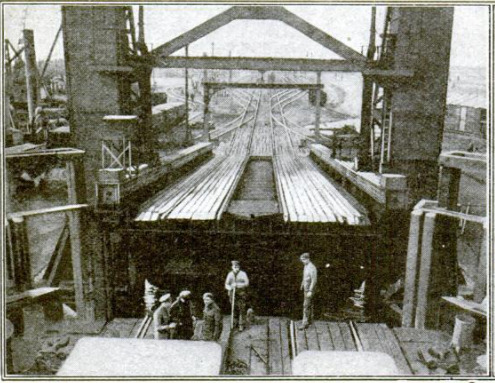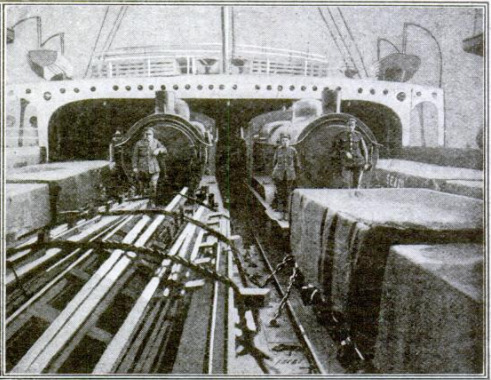How the British managed to carry war material to France through the English Channel without being discovered by the Germans
Contenuto
-
Titolo
-
How the British managed to carry war material to France through the English Channel without being discovered by the Germans
-
Article Title and/or Image Caption
-
Title: Ferrying War Material to the Tommies
-
Subtitle: In boats the Germans didn't know existed
-
extracted text
-
GERMAN fliers and U-boats kept
a sharp watch on the British
Channel coast, and made numerous
ttacks at different points from which,
Eh suspected, shipments of war
material to France were made.
Realizing the seriousness of the
situation, the British government
resorted to a ruse which succeeded
remarkably well. About three years
ago, a Channel train ferry was estab-
lished at Richborough, a small town
amid the salt marches fringing the
mouth of the river Stour, which
empties into Pegwell Bay, between
Ramsgate and Dover.
Knowing that there was no harbor
at that point, the Germans never
took the trouble to raid this part of
the Channel coast. The British
government built extensive magazines
at Richborough, and established a
ferry-house with an adjustable
platform provided with a double
track.
Three ferries, each with a capacity of
fifty-four fully loaded British standard
sallway cars. on thelr wheels, or the
equivalent in locomotives, tanks, auto-
mobiles, etc., were placed in the ser-
vice. Alternately they -took aboard
their quota of cars loaded with war
material, and carried them to France,
where the trains were transshipped
to the French railway lines and
speedily taken to the front. The
ferries returned from France with
empty trains.
The average time required to re-
move the empty cars from the ferry
and to run loaded trains on the boat
was about thirty minutes,
-
Autore secondario
-
International Film (Image copyright)
-
Lingua
-
eng
-
Data di rilascio
-
1919-03
-
pagine
-
38
-
Diritti
-
Public domain (Google digitized)
-
Archived by
-
Davide Donà
-
Marco Bortolami (editor)



